Events and Activities
Hybrid DIJ Study Group on Japanese Private International Law

When evaluating cases involving legal relationships between private individuals with cross-border elements Japanese courts determine which jurisdiction’s law shall be applied to the legal relationship using a set of rules called “Private International Law”. Based on the “Savignian approach” to Private International Law, Japan strives to apply the law that it considers most closely connected to the specific legal relationship. In this context, the so-called Public Policy clause provides a crucial safeguard. If the application of foreign law results in a violation of “public policy and good morals,” this clause enables Japanese judges to exclude the foreign law from application. This presentation will analyze the doctrinal development and practical application of the Public Policy clause, illustrating under which circumstances and conditions Japanese courts invoke it. Details and registration here
Apply now for Gerald D. Feldman Travel Grants for multi-country research projects
 You are an early career researcher looking for funding for research stays abroad of up to one month? If your countries of interest match, why not consider applying for a Gerald D. Feldman Travel Grants for researchers in the humanities and social sciences? Offered by the Max Weber Foundation (MWS), the travel grants allow you to conduct your own research project in two or three of the countries which are home to MWS institutes and branches or at the Richard Koebner Minerva Center for German History in Israel. We particularly encourage applicants whose research includes Japan. Application deadline: 5 October 2025. Please see the full call, list of possible host countries, and application guidelines here
You are an early career researcher looking for funding for research stays abroad of up to one month? If your countries of interest match, why not consider applying for a Gerald D. Feldman Travel Grants for researchers in the humanities and social sciences? Offered by the Max Weber Foundation (MWS), the travel grants allow you to conduct your own research project in two or three of the countries which are home to MWS institutes and branches or at the Richard Koebner Minerva Center for German History in Israel. We particularly encourage applicants whose research includes Japan. Application deadline: 5 October 2025. Please see the full call, list of possible host countries, and application guidelines here
New book by Carolin Fleischer-Heininger studies Terayama Shūji and his influence on Japan’s post-war society
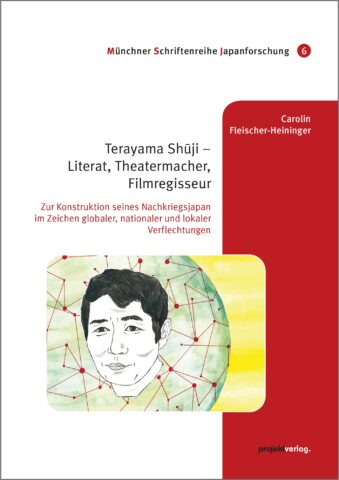
What can literary and artistic works reveal about their time – and how do they shape it? In her new book Terayama Shūji – Literat, Theatermacher, Filmregisseur. Zur Konstruktion seines Nachkriegsjapan im Zeichen globaler, nationaler und lokaler Verflechtungen, DIJ researcher Carolin Fleischer-Heininger explores the construction of postwar Japan through literary, dramatic, and cinematic works of Terayama Shūji (1935–1983). Her study considers the different spatial frames of reference – Aomori, Japan and the world – that guided Terayama’s views and analyses his works with regard to formal and stylistic characteristics. As she shows, Terayama shaped Japan’s cultural landscape by mirroring Japanese society and its narratives. Consequently, Terayama became one of Japan’s most influential and controversial cultural figures. Drawing on theories of globalization and cultural history, Fleischer-Heininger also examines how Terayama’s works negotiate narratives of national identity and historiography in postwar Japan.
Hybrid DIJ Forum on Microbiome and Fermentation
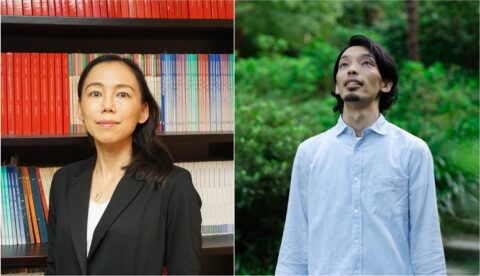
Disturbance in microbiome both at human and ecosystemic levels is resulting in serious health and environmental crises. Science and Technology Studies is beginning to analyze how fermented foods and fermentation are becoming a part of the commodified wellness market and a space of critical reflection on modern antibiotic relations. Using the case of tsukemono or Japanese pickles, the modern antibiotic turn and its contemporary probiotic modulation will be analyzed using both historical and ethnographic data. The case of tsukemono offers insights into the challenges of the Anthropocene and its impacts on microbiome that take stock of existing linguistic and cultural heritage. The event will be held in English, admission is free. The presentations will be followed by a Q&A session and a small reception. Details and registration here
Yasuhiro Kobayashi, founder of Ecological Memes
Open access article by Sébastien Lechevalier introduces French–Japanese research project on innovation led by care
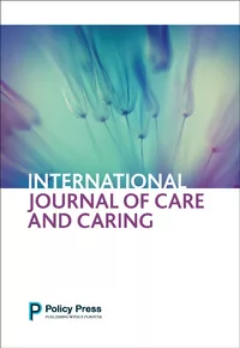
As societies age, eldercare faces mounting challenges that technology alone cannot solve. The article “Care-led innovation: the case of eldercare in France and in Japan”, co-authored by DIJ researcher Sébastien Lechevalier, Yuko Tamaki Welply, Christophe Humbert, Katsunori Shimohara, and Jean-Marie Robine, introduces the French–Japanese research project INNOVCARE, whose aim is to develop fundamental research on the heterogeneous and evolving needs of older adults and to incorporate it into the conception and development of these technologies, with the aim of promoting a form of innovation led by care. Comparing France and Japan and emphasizing dignity, relational autonomy, and quality of life, the study highlights how an ethics of care approach can bridge the gap between social needs and technological innovation, aiming to empower both those receiving care and their caregivers. The article is published open access in the International Journal of Care and Caring (April 2025, early view).
Celia Spoden receives AJJ Mark Bookman Prize

DIJ social scientist Celia Spoden was awarded the Mark Bookman Prize by the Anthropology of Japan in Japan (AJJ) association for her presentation “Avatar Robots as an Alter Ego: New Opportunities for Work or Technological Fixes?” at the joint Japan Anthropology Workshop (JAWS)/AJJ conference in Kobe. Drawing on fieldwork in Tokyo’s DAWN Avatar Robot Café and on interviews with people with disabilities who remotely control an avatar robot from their homes and serve the guests in the cafe, Celia’s paper explores her interlocutor’s motivations and experiences working through the avatar, their perceptions of social participation, work, and disability, and how these perceptions have changed using the avatar. It shows how the avatar robots open up new opportunities for social participation, lead to a feeling of independence and belonging, and challenge common understandings of “disability.” The prize is named after the late Mark Bookman, who was an emerging scholar and a leading authority on disability issues in Japan, and is designed to boost the career of a gifted young scholar researching people with disabilities or other minority groups in Japan.
Onsite Study Group on Imperial Press Policy in Northeast China
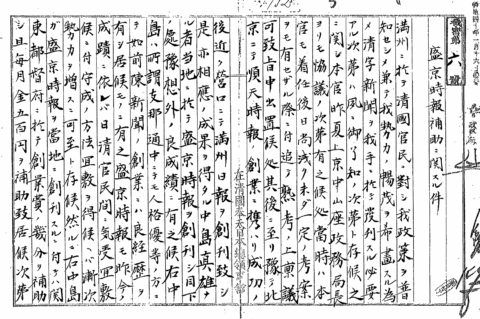
From the late Meiji era, the development of a China-based press network functional to the national interest became an integral part of Japan’s imperial agenda. After the defeat of Russia in the 1904-05 war, the Northeast, compared to other regions, offered to Japanese initiative more favorable conditions to achieve a dominant position in the media landscape. One of the most successful enterprises was the government-sponsored Shengjing Shibao, which became the largest newspaper in Fengtian (Shenyang). As a tool of foreign policy, however, press management suffered from the lack of unified decision-making among different agencies. This talk will present a case study to analyse Japanese imperial press policy as representative of the polycentric character of strategic planning in imperial Japan. Details and registration here
Book talk by Dolf Neuhaus on Japanese Colonial Rule in Korea
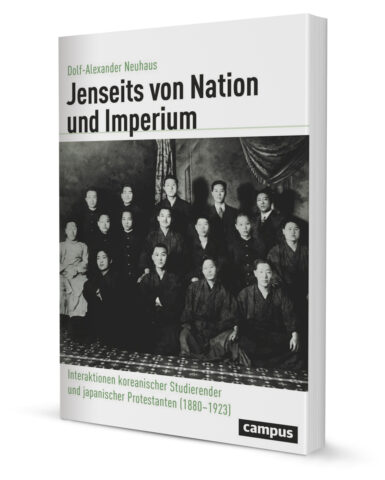
DIJ historian Dolf-Alexander Neuhaus will introduce his book Jenseits von Nation und Imperium. Interaktionen koreanischer Studierender und japanischer Protestanten (1880–1923) [Beyond nation and empire. Interactions between Korean students and Japanese Protestants, 1880-1923] at the next AREA Ruhr Book Talk on 25 June 2025, 10-11h CEST (in German). Drawing on a wide range of Japanese and Korean sources, the book examines how students and intellectuals discussed Japanese colonial rule in Korea and the ‘Korean question’ and how their exchange of ideas influenced Japanese and Korean perceptions of empire, nation, and East Asia. The book is published by Campus in the Global History series. Details and registration here



 Open Access
Open Access
